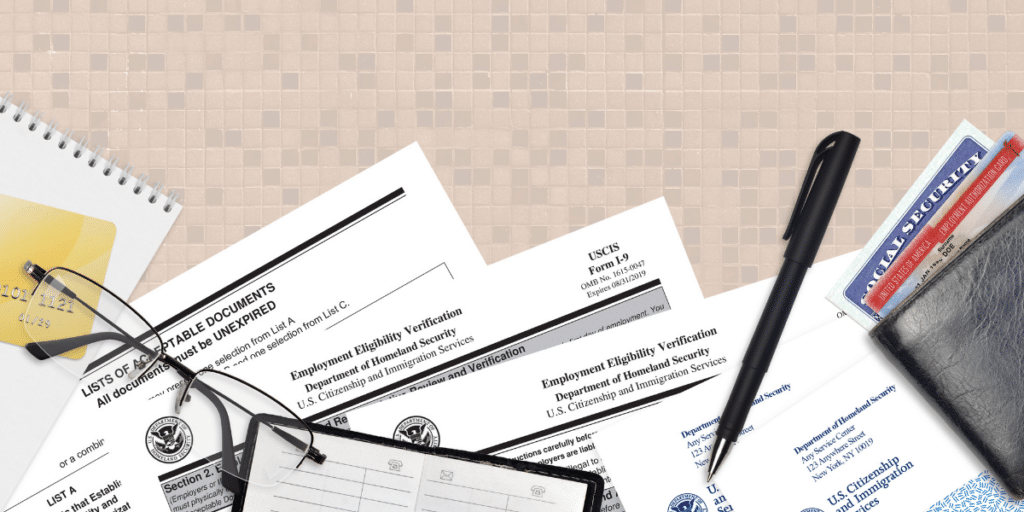October is Domestic Violence Awareness Month, a time for us to open our hearts and truly understand the gravity of domestic violence. It’s not just a statistic. It’s a real, pressing issue affecting countless individuals of all backgrounds. Domestic violence can manifest as physical harm, emotional torment, or psychological manipulation.
While leaving an abusive environment is crucial, it can also be incredibly dangerous and complex, requiring careful planning and support.
The Reality of Domestic Violence
Domestic violence doesn’t discriminate. It affects millions of Americans each year, regardless of gender, age, or social standing. Alarmingly, statistics from the National Coalition Against Domestic Violence reveal that 1 in 4 women and 1 in 7 men over 18 have been the victim of severe physical violence by an intimate partner in their lifetime.
Recognizing Red Flags
Spotting the early warning signs of domestic violence is key to staying safe and acting in time. Keep an eye out for these red flags, whether in your own relationships or those around you.
- Controlling Behavior: This might include dictating what you wear, who you talk to, or where you go.
- Isolation: Keeping you away from friends, family, or social activities can be a tactic to exert control.
- Frequent Jealousy or Anger: Unwarranted jealousy or explosive anger can indicate deeper issues.
- Pressure: Whether it’s pressuring you for sexual favors, forcing you into using drugs or alcohol, or pushing you into doing things that make you uncomfortable, this is a major warning sign.
- Threats and Intimidation: Any threats of harm, whether to yourself or others, should not be taken lightly.
- Financial Abuse: This could involve limiting access to money, making all financial decisions, or sabotaging your attempts at employment.
- Physical Harm: The use of physical force, such as hitting, kicking, or throwing objects, is never acceptable in a healthy relationship.
- Constant Put-Downs: Verbal abuse, such as name-calling or belittling, especially in front of other people, can be just as damaging as physical abuse.
If you notice these signs in your relationship, reach out for help. If you notice these signs in someone else’s relationship, encourage open conversations and guide them to professional resources. Make sure they know support is available whenever they’re ready.
Why Leaving Can Be Dangerous
Leaving an abusive relationship is often the most dangerous time for a survivor. Abusers may escalate their behavior to regain control, leading to increased violence and risk. It is essential for survivors to have a well-thought-out safety plan.
What to Do
Experiencing or witnessing domestic violence can feel overwhelming, but there are steps you can take to protect yourself or support someone in need.
Creating a Safety Plan
A safety plan is essential for anyone in an abusive relationship. It’s a personalized, practical plan that can help you avoid danger and know the best way to react when you’re in crisis. Here are some key steps to consider:
- Identify Safe Areas: Know the safest rooms in your home to retreat to during an argument—preferably rooms with an exit and no weapons.
- Have a Go-Bag Ready: Prepare a bag with essentials like identification, important documents, medication, and money. Keep it hidden but easily accessible.
- Establish a Code Word: Develop a code word or signal with friends or family to alert them discreetly when you need help.
- Plan Your Exit: If possible, rehearse how you would leave your home safely. Know your exits and practice how you’d get out quickly.
If you need help creating a personal safety plan, the National Domestic Violence Hotline offers an interactive tool to get you started.
Reaching Out for Help
Reaching out might feel daunting, but there are numerous resources ready to support you:
- Hotlines: Call the National Domestic Violence Hotline at 1-800-799-7233, chat with a representative at https://www.thehotline.org/, or text “START” to 88788. They can provide 24/7 guidance and immediate assistance.
- Confide in Trusted Individuals: Share your situation with people you trust. They can offer emotional support and help you plan.
- Professional Support: Seek counseling and support groups for emotional healing and empowerment.
If you are in immediate danger, call 911.
Document Incidents Safely
Documenting incidents of abuse can be invaluable should you decide to pursue legal action. Here’s how to do it safely:
- Keep a Detailed Journal: Note dates, times, and descriptions of incidents. Keep this information secure, possibly using a password-protected digital document.
- Photographic Evidence: If safe, take photos of any injuries or property damage. Store these images securely away from your abuser.
- Medical Records: Seek medical attention for injuries and ensure that the details are recorded accurately.
- Witnesses: If possible, connect with any potential witnesses who can verify incidents of abuse.
Supporting Someone Else
If someone you know is experiencing domestic violence, your support can make all the difference:
- Listen Without Judgment: Offer a non-judgmental ear and believe their account of what’s happening.
- Encourage Professional Help: Gently suggest they reach out to experts who can provide guidance and resources.
- Respect Their Choices: Understand that leaving is a complicated decision and respect their timing and choices.
Taking these steps can make a significant difference in ensuring safety and providing the support needed to navigate these challenging situations. Remember, you’re not alone, and help is available.
Local Resources in Charlotte, NC
For our neighbors in the Charlotte, North Carolina area, there are some incredible local resources dedicated to offering support and assistance:
- Safe Alliance: This organization offers a range of services including a 24/7 crisis hotline, emergency shelter, and counseling services. Their hotline is available at any time for those in need. Call (704) 332-2513 or visit https://www.safealliance.org/.
- Turning Point: Located in Union County, this shelter provides emergency resources for survivors of domestic violence, sexual assault, and child abuse. Call their hotline at (704) 283-7233 or visit https://turningpointnc.org/.
- North Carolina Coalition Against Domestic Violence: NCCADV provides resources and contact information for local domestic violence agencies for all counties in North Carolina. Visit https://nccadv.org/get-help/ to find local help.
Legal Protections for Survivors
Survivors of domestic violence are not alone. There are several legal avenues available to help ensure their safety:
- Protective Orders: In North Carolina, survivors can apply for a Domestic Violence Protective Order (DVPO), often called a restraining order. This legal measure can help guard against further abuse and might include provisions related to custody, visitation, and support.
- Custody and Support: Addressing custody and child support, whether within a Protective Order or through Family Court, can be daunting, but legal assistance can help ensure the safety and well-being of any children involved.
At Dozier Miller Law Group, we’re here to help navigate these legal options with empathy and understanding. We know how complex these situations can be and are committed to providing compassionate legal support.
If you or someone you know is in need of legal guidance, please reach out to us at Dozier Miller Law Group. Our dedicated attorneys are here to help survivors navigate the legal system with care and confidence. Contact us to discover how we can assist you or your loved ones.
Building a Safer Future
Domestic violence is a pervasive issue that requires attention, compassion, and action. By understanding the complexities involved and knowing where to turn for help, survivors can find the support they need to regain control and rebuild their lives. Let’s use this October and every month thereafter to advocate for safer communities and support those affected by domestic violence.

CATEGORIES
Contact an Attorney
Our attorney offer specialized guidance and representation in a variety of practice areas.

REMEMBER: Always speak with your own attorney
This information is provided for informational purposes only; it is not offered as and does not constitute legal advice.
More Insights and Resources
Learn more about what to expect when facing a family law dispute in Charlotte, North Carolina from Family Law attorneys at Dozier Miller Law Group
Can You Get Your Due Diligence Money Back? What Homebuyers Need to Know
Purchasing a home is often one of the most significant financial decisions you’ll make. If you’re house…
What NC House Bill 269 Could Mean for Non-Compete Agreements in North Carolina
Non-compete agreements have long been a controversial tool in the corporate world—sometimes protecting legitimate business interests, and…
Protect What Matters Most: Estate Planning for Every Stage of Life
Thinking about the future doesn’t always come naturally. Many of us get caught up in the day-to-day,…
Will a Separation Protect Me Financially?
Separation is never easy, especially when financial questions start piling up. Can you protect your savings? Will…
Practical Custody Arrangements for Families
Trying to figure out custody arrangements? You’ve probably come across terms like joint custody, primary custody, and…
Future-Proof Your Business Against Form I-9 Changes
Running a business is no small feat. Between managing your team, keeping customers happy, and planning for…
When Do You Need an Attorney for a Breach of Contract Case?
Contracts are the backbone of any good business relationship. They bring clarity, set expectations, and hold everyone…
Navigating Immigration Changes and Their Impact on Employment Law
No matter the size of your business, immigration law affects your ability to hire and retain the…
LGBTQ Families and Stepparent Adoption: What You Need to Know in North Carolina
As a family law attorney in North Carolina, I’ve seen many parents assume that their legal status…
What to Do When You Get a Bad Google Review
If you’re a Charlotte business owner, you know just how important your online reputation is. Around 98%…










